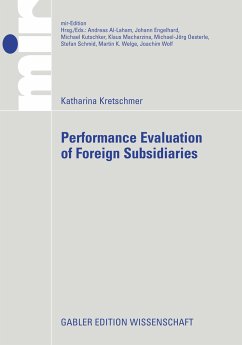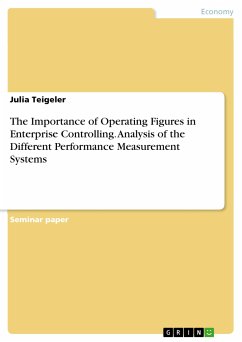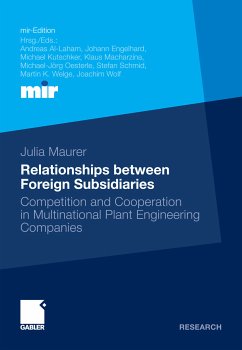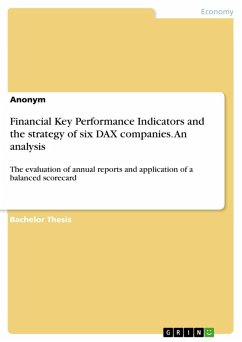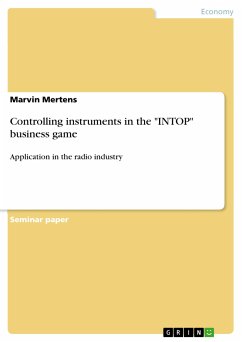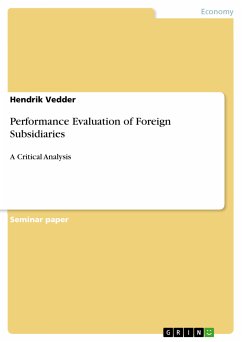
Performance Evaluation of Foreign Subsidiaries (eBook, PDF)
A Critical Analysis
Sofort per Download lieferbar
Statt: 18,95 €**
16,99 €
inkl. MwSt. und vom Verlag festgesetzt.
**Preis der gedruckten Ausgabe (Broschiertes Buch)
Alle Infos zum eBook verschenkenWeitere Ausgaben:

PAYBACK Punkte
0 °P sammeln!
Seminar paper from the year 2008 in the subject Business economics - Controlling, grade: 1,7, European Business School - International University Schloß Reichartshausen Oestrich-Winkel, course: Seminar Controlling, language: English, abstract: Long before the globalisation had become a buzz word and an impetus for companies to invest abroad, enterprises enlarged their "business playing field" into foreign countries for various reasons, such as to capture a new market, to secure resources, or to take advantage of local cost levels. Therefore, subsidiaries are heavily involved in the value crea...
Seminar paper from the year 2008 in the subject Business economics - Controlling, grade: 1,7, European Business School - International University Schloß Reichartshausen Oestrich-Winkel, course: Seminar Controlling, language: English, abstract: Long before the globalisation had become a buzz word and an impetus for companies to invest abroad, enterprises enlarged their "business playing field" into foreign countries for various reasons, such as to capture a new market, to secure resources, or to take advantage of local cost levels. Therefore, subsidiaries are heavily involved in the value creation process for and within multinational corporations (MNCs). However, despite the fact that the measurement of performance is crucial for globally active companies not only in steering the value creation for the MNC but also, for example, in fostering international expansion or guiding resource allocation, MNCs differ significantly in the extent to which they are aware of the performance of their subsidiaries. Due to the fact that strategic decisions regarding the global expansion of a MNC require a wide and clear information basis to be able to assess how successfully a foreign subsidiary has conducted its business or under what possibly unfavourable environmental conditions the business results were achieved, multinational enterprises have to implement a system for evaluating the performance of their foreign subsidiaries and their management. Therefore, this paper aims to analyse the central aspects to consider in the evaluation of the performance of foreign subsidiaries. This paper is divided into five chapters. After a short introduction to the theoretical background of performance evaluation in chapter 2, the paper continues in chapter 3 with the central issues of an effective performance evaluation system for foreign subsidiaries with a clear focus on the aspect of separating managerial and subsidiary performance. Then chapter 4 illustrates the measures used for evaluating foreign subsidiary performance. Finally, the paper concludes by emphasising that an MNC can properly evaluate the performance of it foreign subsidiaries only by considering the specific environmental factors of the foreign country, separating managerial and subsidiary performance, and supplementing financial with nonfinancial measurements. [...]
Dieser Download kann aus rechtlichen Gründen nur mit Rechnungsadresse in A, B, BG, CY, CZ, D, DK, EW, E, FIN, F, GR, HR, H, IRL, I, LT, L, LR, M, NL, PL, P, R, S, SLO, SK ausgeliefert werden.




